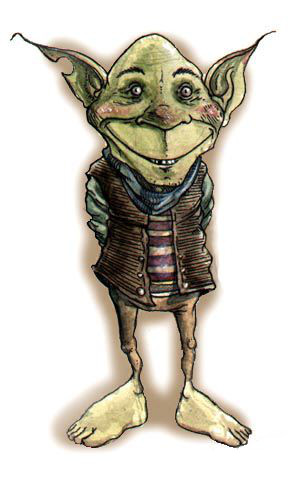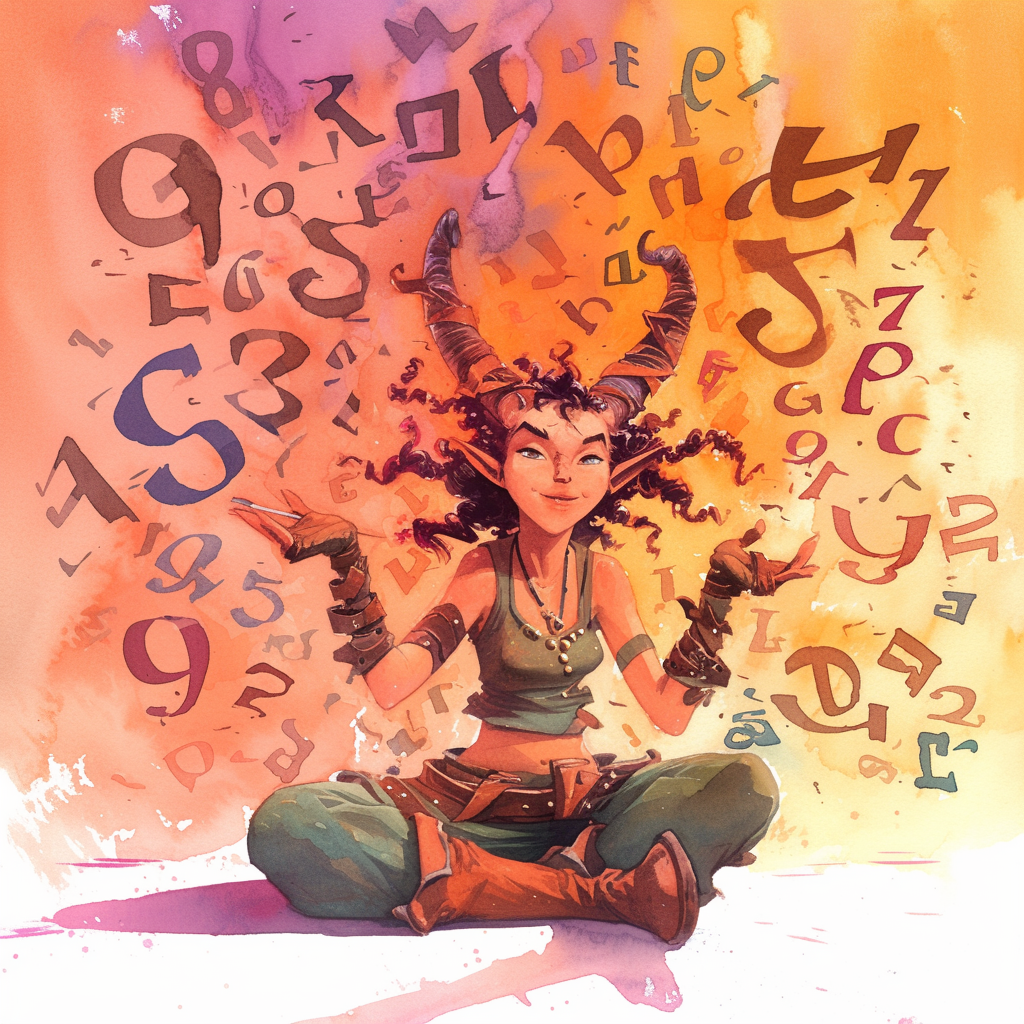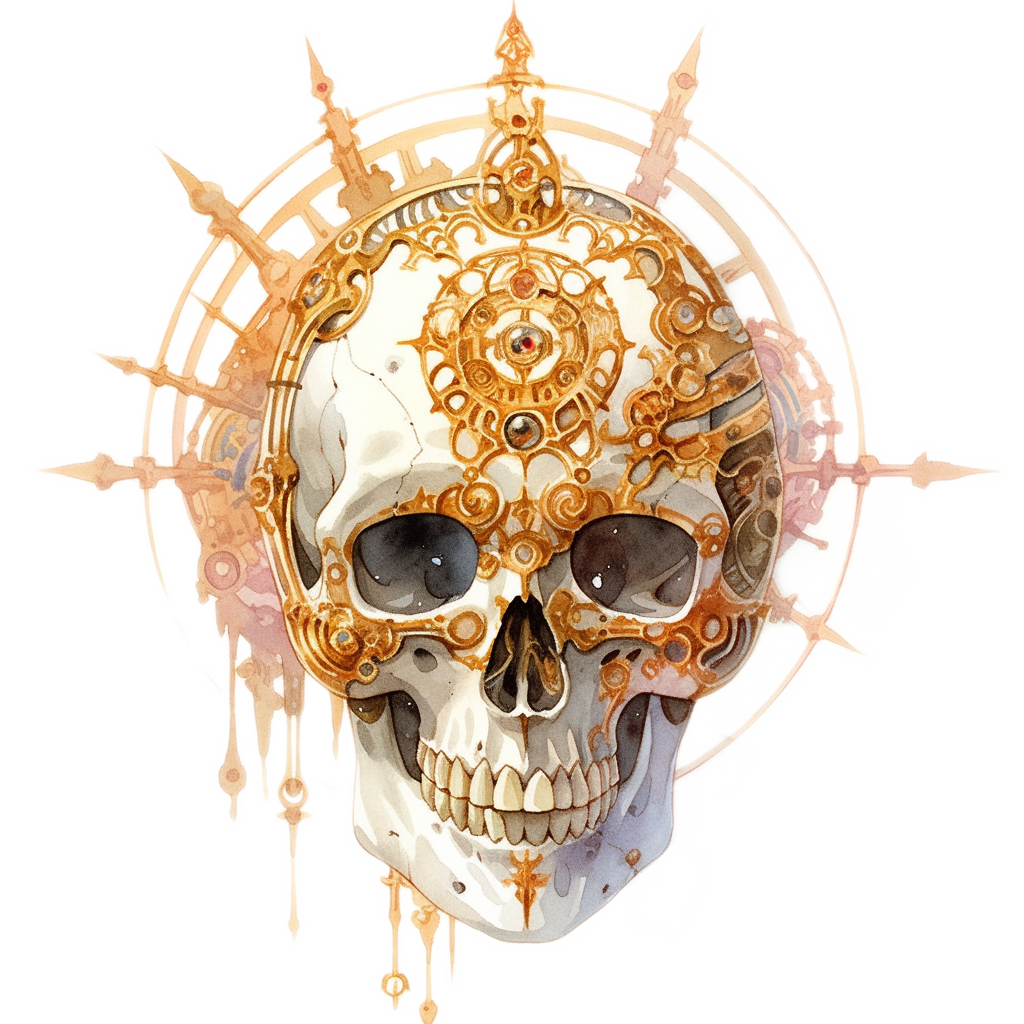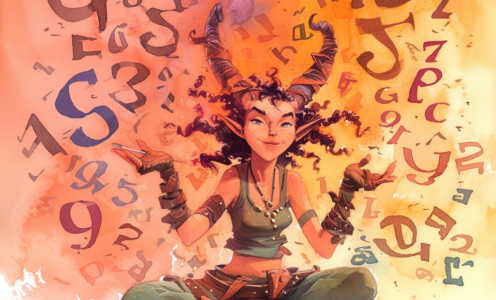Finding Sense in Chaos
Philosophy by Numbers: Xaositects
Ever wondered if there was any method behind the faction’s madness?
Well, a semiologist factioneer named Zoaster would like to set you straight: There is.
I who am? Name by Zoaster of the Xaosman an. But don’t worry, I don’t talk like that all the time, cutter. That’d be far too predictable.
Most bashers like you get completely the wrong impression of the Xaositects. That’s doubtless a good thing, because imagine what a dreary Multiverse it’d be if everyone’s first impressions were always right. No, I much prefer it the way it is; just a little unpredictable.
‘Course, I’m not like the other factioneers — no two of us are the same. But I’m probably a little bit extra-different to your palette. For starters, I don’t rush round doing random things all the time, and I rarely talk in that twisted scramblespeak. To be honest, I find it pretty hard to fathom myself. So why do I call myself an Xaositect, and why did Voilà! ask me, of all people, to talk about the faction’s philosophy.
Well firstly, I subscribe to largely the same principles as the Xaosmen, it’s just my methods and reasoning are a little more sound. I think Voilà! well knows that if you got just any old factioneer along to record his musings on the faction, you’d just get a bunch of odd words, funny colours and symbols. Might as well talk to a dabus, for all the use that’d be, eh?
No, I am a Xaositect philosopher, in the fullest sense of the word. I believe that rather than just enjoying chaos for Xaos’ sake, the Xaositects have a strong philosophical bent. It’s just they don’t know it. I’ll explain…

“If thinking too much gets you in the deadbook,
—Xaositect motto
and not thinking enough gets you likewise, then I should live forever!”
Now I’ll agree as strongly as anyone that culture should involve symbolism, but it should be a symbolism that is open to interpretation and debate. What do I mean? Well, the way things are now, reality itself is forced on to us through culture and its signs. I’m not just talking about the Sign of One factioneers, though they’re a good place to start. See, these cutters reckon that if they think something hard enough, it’s made real. They impose their own desires for reality upon us all by using their symbols, figureheads, and lofty ideals. Maybe they can bend reality to their whims, but I ask, is that a good thing? What, to have your personal reality dictated by another? I think not.
Society as a whole does exactly the same thing. Take the powers, for example. They’re often said to be nothing more than great big figureheads; ones that bestow spells, granted, but figureheads nonetheless. They can only exist because people believe in them. They are symbols; signs; they are not of reality. As it goes, cultures have a tendency to dredge up the myths and legends of ancestors (these are symbols too, of course, because everyone knows myths ain’t true), and incorporate them into their current way of thinking. In this way, old signs and symbols are resurrected and recycled into culture.
Basically, reality is dead! There’s no longer such a thing as “real” or “natural”…out here on the planes, everything is a symbol, everything is a simulation of reality. More fool the planewalkers, then, who go on and on about the “rightness” of it all, or the “grand scheme” of the planes. It’s all created of their own imaginations; symbolism all; recycled throughout the millennia and imposed through culture itself onto culture itself.
You’re finding this hard to follow? Well, why’d you think so many of my fellow factioneers dispense with the philosophy altogether? But I’m ahead of myself. I should give you a few examples, to clarify what I’m talking about.
Take the Lady of Pain. She’s not a real entity…she’s a symbol, created by the culture which she oversees. She has no real history, no name, no personality…all of these things are attributed to her through modern mythology; recycled ideas from other cultures, signs imposed on her, and thus reflected back and reimposed on the simulated “reality” we live in. At her most simple level, the Lady is a recycled mother figure, stern and beyond the understanding of we mortals, her symbolic children.
To be “normal”, as some desire, is to be oppressed by a culture obsessed by signs. When reality can be dictated and simulated like this, it becomes dangerous. What’s more, there’s another danger looming on the horizon…
The technology of mass reproduction and machines will work to standardise and homogenise culture even more, creating all-encompassing signs which impose themselves on us all. Take the Automatic Scribe, or mass-printed pamphlets like SIGIS, for example…the newsrag tells us what is news, brings our opinions to our doorstep and blinds us to possibilities it does not consider, so they do not exist. Reality is reduced. These things are just the beginning of a Multiverse where reality has been destroyed beyond redemption. Conformity is spreading…

“So chaos you seek? can not seek chaos, must find it”
For a nightmarish glimpse of what I believe the future may hold, we only need to take a jaunt to Mechanus. The modrons there are a perfect example of what might happen when reality is dealt its final death knell. These creatures are so caught up in their symbolism that they are not even aware of each others’ existence, because that would not comply with the picture of reality which is dictated to them through their all-encompassing figurehead, Primus. Like the Lady of Pain, Primus is a figment of the simulated reality in which the modrons are trapped.
How did this happen to an intelligent and advanced planeborne race? I believe (and I know Magnum Opus agrees with me on this point at least), that the modrons were not always as they are now. They were, however, always a utilitarian race. By that I mean they’re driven by a burning desire to maximise the “happiness”, or rather, efficiency, of their society. Each action, according to this philosophy, has positive and negative effects. If at any point, an individual calculates the outcome of each action and then performs the one that gives the most positive effect, slowly the society as a whole can become more perfect.
However, in the end, the modrons discovered the key to maximum “utility” — all of them followed the same route, and they lost their identity. The race might well be the epitome of efficiency and perfectly structured, but when everyone is equally happy, happiness itself loses its meaning and becomes another simulation in the false reality.
Well, we’ve taken the scenic route to arrive here. The only way to explain what the Xaositect philosophy is to me is to first explain what it opposes. I believe the faction promotes and breeds three important things: difference, diversity, and through these, existence. To remain real, and not just disappear into a figment of the imagination, societies must be stirred up. Old symbols must be destroyed and new ones found to replace them. We Xaositects are keeping the diversity in the Cage alive by our actions; without us it’d be a much duller place, as I’m sure you’d agree!
Beauty is in the unique. Laws can only restrict this freedom to expression, freedom to think. “Behaving” is what parents impose upon their children to crush their creativity, force them to act according to set patterns, and impress upon them the simulation of “normality”. Accepting the child inside, overthrowing the conformity and behaving as one wishes rather as others wish is the hallmark of this belief, the hallmark of one’s own intellectual maturity. That’s what the Xaosmen are doing, thought most of them don’t even realise it. They’re basking in the joy of chaos, and that joy ain’t anything to do with philosophy, it’s the happiness that only children know. For they’ve re-learned how to play again.
If society defines this as chaotic or evil then so be it; society is the one with the problem!


Julius the Symmetrical, Contrary Philosopher, responds…
“Yet diversity can be carried too far in the wrong direction: the slaad are terrified of losing their senses of identity, but have in essence already done so by moving too far in the opposite direction. They have no identity of their own as their pure randomness obliterates it as effectively as total law-abidingness. Without a grip on laws and patterns, and through them these “all-imposing signs”, society would slip into a morass of randomness and lose sight of reality just as quickly. Maybe the Xaositects do perform an important function in the Cage (not many people’d say that, eh?) but we shouldn’t fall for all of their screed…they might be important in some respects but the defenders of reality they ain’t.”
Inspiration
- Postmodernism for Beginners, by Richard Appignanesi and Chris Garratt, Icon Books 1995.
- Baudrillard for Beginners, by Chris Horrocks and Zoran Jevtic, Icon Books 1996.
- Ethics for Beginners, by Dave Robinson and Chris Garratt, Icon Books 1996.
Source: Jon Winter-Holt


